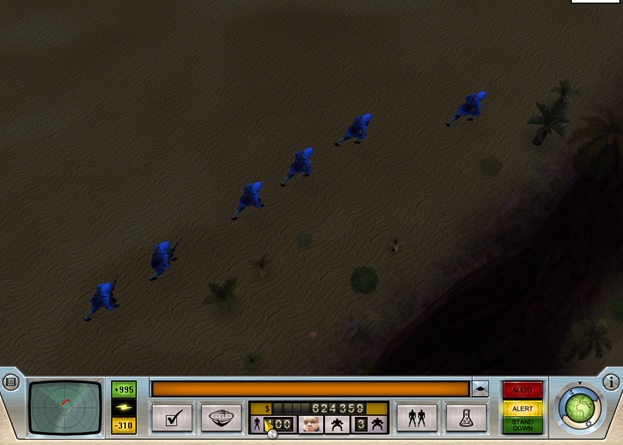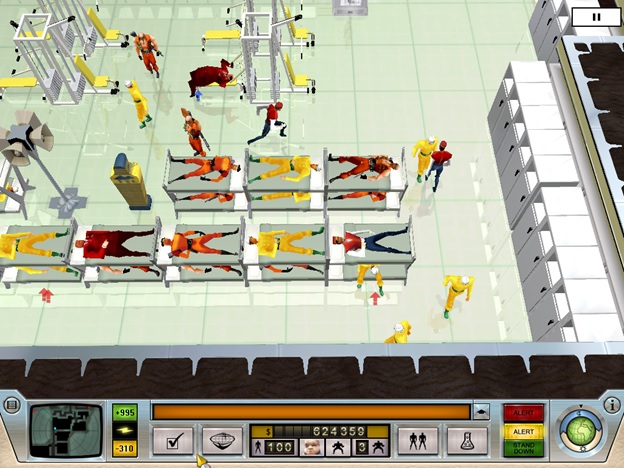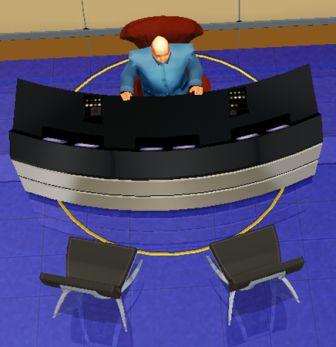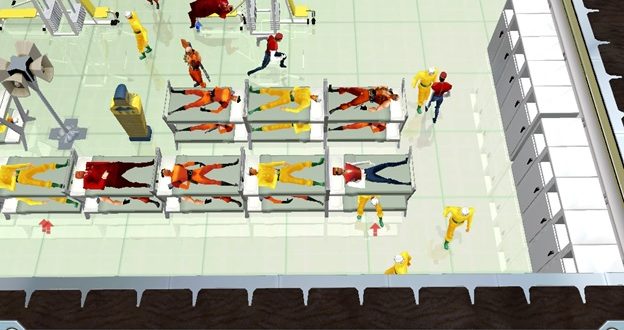Playing at World Domination
There are many video games I consistently revisit even though I’ve played them innumerable times and I certainly have a stack of newer games I should be playing. It’s the lure of the familiar, an entertaining game mechanic, or a challenge that I enjoy besting that constantly draws me back in. The PC game Evil Genius is one of those games.
Hardly revolutionary in its mechanics or even its looks, Evil Genius uses elements from several classics like Dungeon Keeper and The Sims. In Evil Genius you’re a criminal mastermind seeking world domination. You build a lair deep in a remote island’s mountains where you stage acts of infamy and larceny. The world’s crime-fighting agencies send skilled agents to your island to try and put a stop to your plans. Among those do-gooders are saboteurs who seek to plant explosives in your base, investigators who search for evidence to use against you, and burglars who attempt to steal back national treasures. After you commit a particularly heinous and brazen crime, justice agencies, seeking revenge, will send hit squads of crack soldiers to try and wipe out your base and your organization entirely.

Every criminal leader needs lackeys to do his dirty work and in Evil Genius you have a roster of minions and henchmen to carry out your orders. Minions start out as simple construction workers capable of building your base, carrying purchased items, and, while fighting the forces of good, dying. As you go out into the world and capture skilled civilians you can steal their knowledge to train new types of minions, such as guards to defend your base, valets to tend to other minions and distract simple enemy agents, technicians to repair damage, and science minions to research new objects to place in your base.

It’s the base building that I love most about Evil Genius. I enjoy planning out the most efficient design possible to thwart incoming agents and keep my staff of minions happy. Along with building rooms and purchasing objects to keep your criminal empire growing, you can build traps to have some extra fun with the agents of justice who seek to stop you. And if a few of your hapless minions fall into those traps as well, so much the better.
I continually return to Evil Genius even though I’ve beaten it multiple times since it does a lot of things right. Though, that said, it does many things wrong and the game’s flaws can be very frustrating.
Evil Genius’ biggest failing is the game’s pace as it takes forever to do anything. If you’ve just been attacked by a squad of soldiers and lost many minions in the fight, it takes ages to train new ones. You can recruit basic minions at a faster rate by spending more money. To earn money you send minions out into the world and steal it from various countries; a process which itself takes a lot of time. Your thefts then attract the attention of law-bringers, who send in kill-squads, costing even more money to fend off. When it comes to money in Evil Genius I just put in a cheat code to be done with it. The game is entirely more fun when I’m not balancing earning income against everything else. I might not have found this necessary if the game had borrowed another mechanic from The Sims: a gauge to speed up and slow down time.

Another major flaw in Evil Genius is how it assigns tasks to minions. Often it’ll choose the furthest minion from a situation where there are many others better suited. For example, valet minions are the only ones who can use fire extinguishers. If a fire breaks out in your base the game will often assign a valet at the other end of the building to tackle the blaze while nearby valets stand around doing nothing. By the time the extinguisher-toting valet has arrived you’ve suffered major damage to your base. Combat with enemy agents commonly plays out in a similar fashion. Your guard minions, while confronting a group of soldiers, will get shot to bits as they decide to fight an individual enemy at the back of the group. I find it to be very odd that the game’s developers released Evil Genius with its AI’s decision-making so clearly broken.
Included in its defects, though perhaps slightly more excusable, is Evil Genius’ cap on the number of minions you can have. Undoubtedly this was designed to make sure that your computer could handle the game – the more bodies moving about the game world, the more processing power you’ll need. It’s annoying though as when the game first came out my mid-range computer had no problem handling it. And you really need more than one hundred minions to make the game any fun. Luckily after some internet research I found that you can edit one of the game’s files to raise the total number of minions you may have, though this can occasionally cause the game to crash.
Evil Genius has been out for several years now and is fairly irrelevant to today’s gaming scene. But I wanted to write about it to appease a long-shot fantasy of mine that Evil Genius 2 will be developed one day. The game fell short in several ways but at its core is a lot of fun. I’d hate for the game to completely disappear into history without getting the second chance it deserves. I’m sure I’ll continue to load it up from time to time when I get the itch to design the ultimate fortress of an evil madman.


